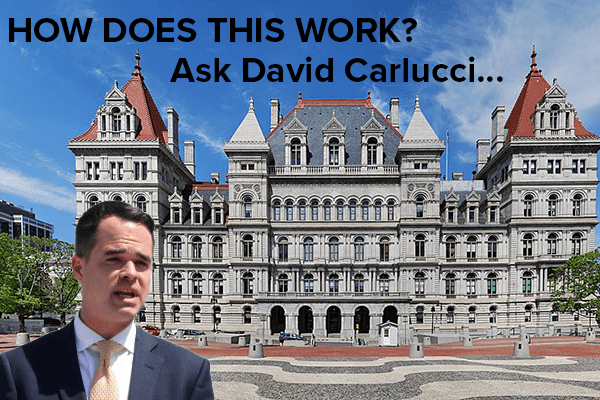|
RCBJ-Audible (Listen For Free)
|
Counties Can Opt-In, Create Local Registries, Collect Sales & Occupancy Taxes On Short-Term Rentals
By David Carlucci
 New York State will initiate a first-of-its-kind short-term residential rental registry program in April of 2025 following an extensive negotiation process between the Governor and State Legislature.
New York State will initiate a first-of-its-kind short-term residential rental registry program in April of 2025 following an extensive negotiation process between the Governor and State Legislature.
Bills S.885 and A.4130 aim to regulate short-term residential rental services like Airbnb and Vrbo to alleviate constraints on the affordable housing market in high-demand New York counties. The legislation establishes a short-term residential rental registry where booking services must detail specific rental locations, the number of occupancy nights, and guest counts.
On December 21st, Governor Hochul approved S.885C/A.4130C alongside several chapter amendments. Chapter amendments allow the Governor to pass a bill while making eleventh-hour modifications before it becomes law. This process requires the Governor, Assembly Speaker, Senate Majority Leader, and the bill’s sponsors to come to the table and negotiate a final product.
On Christmas Eve, Governor Hochul, Majority Leader Stewart-Cousins, Speaker Heastie, Senator Hinchey, and Assemblymember Fahy agreed on an ultimate short-term registry system with the following new changes.
The original version of the short-term rental (STR) bill called for the establishment of a statewide registry maintained by the Department of State. In her approval memo, Governor Hochul recognizes the need for the registry but shows concern of “significant unbudgeted costs” imposed on DOS through a top-down system.
Instead, the short-term residential rental registry law will allow counties to opt-in to the program by creating their own registry. DOS is still involved, but only to receive quarterly reports from booking services on the number of bookings in each county. The rest of the data collection from occupancy nights, guest nights, and the impact on affordable housing, is all the responsibility of participating counties.
Counties with STR registries prior to the effective date will be given additional autonomy, rights, and responsibilities under the chaptered law. These municipalities have the authority to maintain their registries and adopt unique requirements, regulations, and penalties. In addition, the chaptered law upholds the right for localities to prohibit short term residential rentals, as many already have in Rockland County
To balance out the cost of local oversight on STR registries, the chaptered legislation modifies the tax structure to maintain robust revenue streams for local governments. Once the law is implemented, STR property owners must pay the same sales and occupancy taxes as hotels under the current tax law. These figures vary across jurisdictions and will be determined prior to the late-April effective date.
In Rockland County, many towns and villages ban short-term rentals. Orangetown’s code bans rentals of less than 30 consecutive days in its residential zones. Clarkstown and Stony Point ban rentals of less than 29 days in its residential zones. The Village of Haverstraw requires registration of short term rentals and prohibits short term rentals aggregating more than 90 days in any calendar year. Short-term rentals are allowed in the Village of Nyack, the Village of Suffern, and the Town of Ramapo, but Ramapo’s new hotel tax defines hotels to include short-term rentals.
Read also: Statewide Short-Term Rental Registry Passed Legislature; Awaits Governor’s Signature














